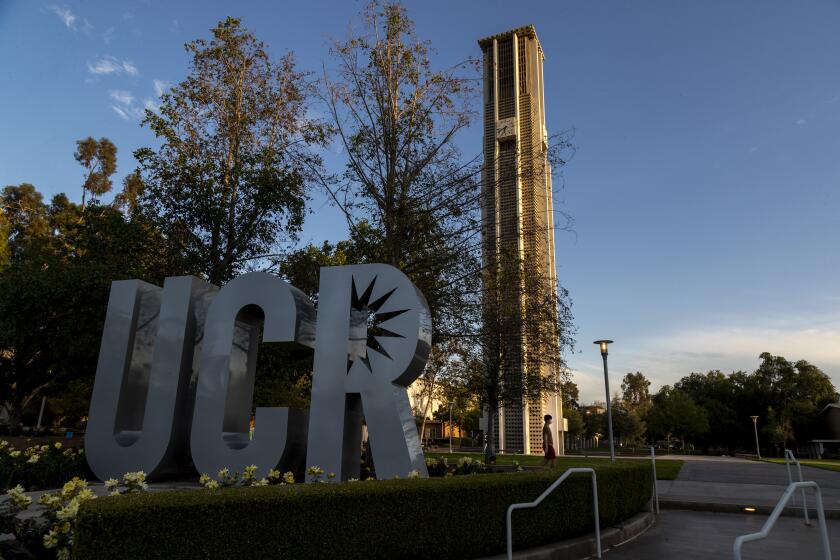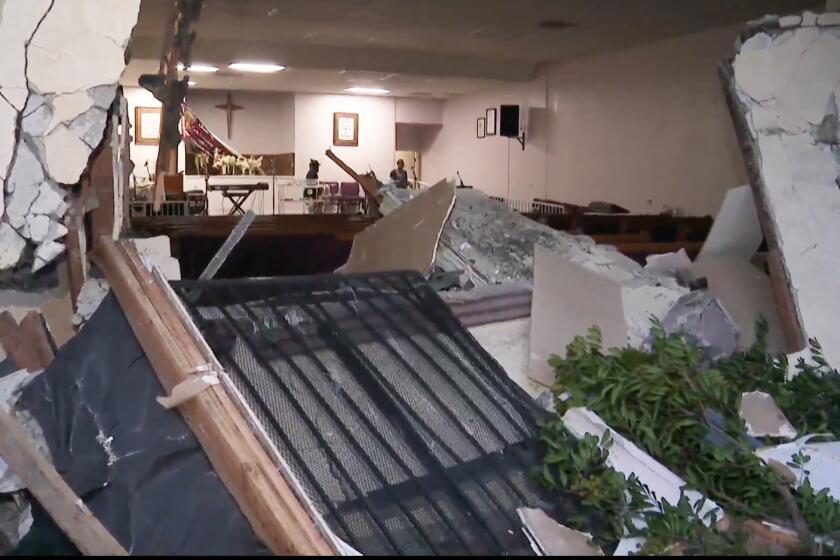We, The Taxpayers
California’s arcane system of state and local taxes hits every household differently. To gauge the bite, The Times asked a cross-section of Southern California residents to pull out their tax returns and talk about the system. To make it easier to compare these tax bills to your own, the stories are color-coded with the charts shown here, which provide several measures of tax bite and after-tax wealth.
Income Groups Defined: Using Franchise Tax Board data for 1970, 1980 and 1990, The Times divided tax-paying households by income into five groups of equal size. In 1990, the groups were defined this way:
MIKE AND ROSALIA MONTOYA: Upper Middle (Next 20%) $30,001 to $50,000
AGES: 62 and 41
WHERE: East Los Angeles
JOBS: Retired warehouse worker, doughnut shop manager
1992 INCOME: $30,360
1992 STATE AND LOCAL TAXES: $1,935
VIEWPOINT: “I feel a lot of the (tax) money is squandered. But we get a lot of services for the few pennies they get from us.”--Mike Montoya
Mike Montoya remembers well the gloom of the Depression in Arizona, where his father worked as a copper miner. “You could tell the mood of the people by their faces,” he says.
Though he does not think things are as bad today, Montoya says, “we’re in a crunch. The whole world is in a crunch.”
Despite his worries about government extravagance, he is generally appreciative of what society gives him in return for his decades of taxpaying. “You go to countries that don’t have taxes--they don’t have nothing,” he says.
In many ways, the Montoyas are representative of the solid Latino middle class that makes up much of East Los Angeles. Though a high school dropout, Mike Montoya carefully keeps up with world affairs and prods his four children on the importance of education.
“The rich is always going to cry that they don’t get enough,” Montoya says, but he doesn’t begrudge the wealthy their benefits. He also has sympathy for the demands imposed on business in California, mentioning costly pollution requirements.
Still, when asked what kind of taxes might be increased, he begins his list with “corporate taxes, because I wouldn’t have to pay them.” Laughing, he continues: “But I say something fair that we all share. They call this the United States, so we should be united in how we contribute during hard times. . . . Somebody has to pay for the police, the services we take for granted.”
WHAT THEY PAID
State Income Tax: $502
Property Tax: $960
Estimated Sales Tax: $473
State and Local Taxes as a Percentage of Income: 6.4%
*
Data analysis by Richard O’Reilly, Times directoy of computer analysis, and Times researcher Nona Yates from Franchise Tax Board, California Department of Finance and State Board of Equalization data.
More to Read
Start your day right
Sign up for Essential California for news, features and recommendations from the L.A. Times and beyond in your inbox six days a week.
You may occasionally receive promotional content from the Los Angeles Times.





